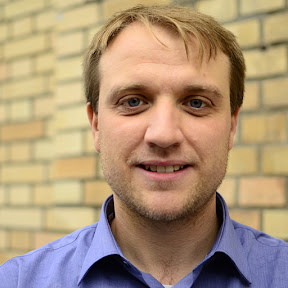Yesterday I attended the talk of Thomas Henry Culhane, a Ph.D. Candidate at UCLA. He is working on a fascinating project called Solar Cities. The basic idea is to engage local poor population in Cairo, Egypt, to build fully functional solar hot water systems. There is not much on the web but here I could find an abstract of a paper published this year.
Solar C3ITIES pilot program has resulted in the creation of three effective and fully functioning solar hot water systems in Cairo built completely out of local materials – even recycled solid waste – using local labor and expertise. These three units now sit on top of two residences in Darb El Ahmar and the Zabaleen recycling school in Muqattam, Manshiyat Nasser. Popularizing science through relevant, hands-on applications and integrating technology for industrial ecology systems, the “Cairo Communities” approach is a project undertaken by the mainly Coptic Manshiyat Nasser and the mainly Muslim Darb El Ahmar communities to bring together craftsmen and craftswomen, artisans, carpenters, welders, electricians and plumbers to build and introduce grassroots sustainable development infrastructure and technology through a new kind of vocational training program.
Here are some random notes I took during the talk:
– Before you teach you need to understand. Sybille, Culhane wife and colleague, was referring to the fact that most of the time we, people coming from industrialized countries, have the attitude of going to poor countries to teach something to them while, most of the time, it is the opposite case. In order to interact between such different cultures we need to live there and understand their culture.
– People want to feel part of history, they do not want to be left behind. Sybille was referring to the fact that people in Cairo are fully aware of what happens in other parts of the world. They have satellite television. They are fully aware that their living system sucks and they desire to have the same basic things that we have in other more developed parts of the world.
– You cannot buy a ‘heat collector’ in ‘The Sims’. Thomas was talking about the simulation game called ‘The Sims’, where you can fully furnish your apartment. However, the objects you can buy in the game are mostly useless in a country where the basic infrastructure is not there. The sets of objects and actions you can take in the game are modeled upon a rich country, read the States, and do not fit other cultures. Besides using these games could be possible to teach the basic principles behind renewable energies but these games are not meant for that.
– Kids in Egypt have skills and access to technology. Thomas was reporting examples of kids playing online games in Internet Cafés in Cairo city. Technology is there, just in different forms and solutions we are used to. Using these channels might be possible to spread new ideas in the community.
– The intelligence is in the network. This seems to be an advertisement message of a mobile phone operator. However, Thomas strongly believe that in order for projects like his to be self sustainable, there is a need for participatory design with the community. There is the need of involving the community in the loop. Once the competences are injected in the community then we might expect initial technological solutions to replicate and evolve spontaneously.
– Bottle Bricks. This was the most fascinating idea. Thomas mentioned the fact that to build the heat collector he was using PVC bottles that he had to sew and glue together. These bottles are thought with a single purpose in mind: carry a liquid. What if we think about a second use for each of our packaging. He was thinking about a Cola bottle that could be used to build a heat collector once the cola was drunk. Instead of sewing and gluing the bottle itself was ready to be connected to other bottles without any extra effort. This might not make a lot of sense in our culture but in developing countries it would make the difference between a pile of junk and technologically advanced materials to build collectors.
